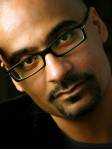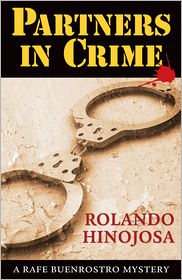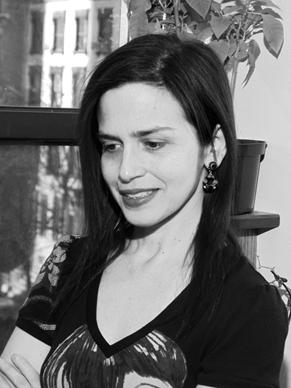Here’s what’s happening in the first month of 2013 (Note: I updated this article to include the Blanco and Valdes links.):
 • Just released: In The Feminist and the Cowboy: An Unlikely Love Story, Alisa Valdes recounts her relationship with a man with opposite views. In an intriguing article in Salon, Valdes said the relationship was abusive. In The Tragedy of Fidel Castro, Portuguese writer Joao Cerqueira imagines how Jesus Christ would settle the battle between Cuban dictator Fidel Castro and U.S. President John F. Kennedy.
• Just released: In The Feminist and the Cowboy: An Unlikely Love Story, Alisa Valdes recounts her relationship with a man with opposite views. In an intriguing article in Salon, Valdes said the relationship was abusive. In The Tragedy of Fidel Castro, Portuguese writer Joao Cerqueira imagines how Jesus Christ would settle the battle between Cuban dictator Fidel Castro and U.S. President John F. Kennedy.
 • Jan. 8: Chilean Alejandro Zambra depicts life in the Pinochet-era Chile in the novel Ways of Going Home.
• Jan. 8: Chilean Alejandro Zambra depicts life in the Pinochet-era Chile in the novel Ways of Going Home.
• Jan. 10: The Miniature Wife and Other Stories is a quirky collection of 18 short stories from Tejano Manuel Gonzales, whose work has appeared in The Believer and Esquire.
• Junot Díaz (right) and Francisco Goldman will speak at “A Benefit Evening of Latin American Storytelling,” Feb. 5 in New York City, with proceeds going to Radio Ambulante. Radio Ambulante’s executive producer, Daniel Alarcon, will moderate.
Literary magazines:
• The literary magazine BorderSenses is taking submissions until March 31 for its next issue. The publication will take short stories, poetry and book reviews in English and Spanish, as well as artwork. Write to editor@bordersenses.com.
Other features:
• Cuban-American poet Richard Blanco will read a poem at President Obama’s inauguration later this month, becoming the first Latino to hold that honor, NPR reports. He was also profiled in The New York Times.
• In a much-discussed article, The New York Times wrote about the lack of Latino-oriented books for children. In a follow-up article, Aurora Anaya-Cerda of La Casa Azul Bookstore in East Harlem, N.Y., gave her reading recommendations. Many small publishers felt they were not represented in the article, and Publishers Weekly featured those presses, including Lee and Low Books and Arte Público.
• Arte Público books, which recently moved into new headquarters, was recently profiled in The Houston Chronicle.
• ABC News/Univision marked the 50th anniversary of the Latin American Boom in literature.
• Book editor Marcela Landres delivered her list of the best in Latino literature for 2012.
• Junot Díaz talked with NBC Latino about how he found his literary voice. He also discussed his love for libraries, politics and the greatness of Star Wars on the TV show Moyers & Company.
• Joy Castro talked to the Lincoln Journal-Star about the prospect of her 2012 book, Hell or High Water, being optioned by actress Zoe Saldana for a possible movie or TV show.
• Sandra Cisneros’ The House on Mango Street and Paulo Coelho’s The Alchemist are among the 30 selections for World Book Night, in which volunteers will give out books April 23. Sign up to be giver by Jan. 23.
• Cisneros remembered Mexican singer Chavela Vargas, who passed away last year, in The New York Times.
• Chilean Roberto Ampuero, author of The Neruda Case and his country’s ambassador to Mexico, was profiled in The Wall Street Journal.
• The film version of Rudolfo Anaya’s Bless Me Ultima is coming to the big screen, reports the Huffington Post.






























